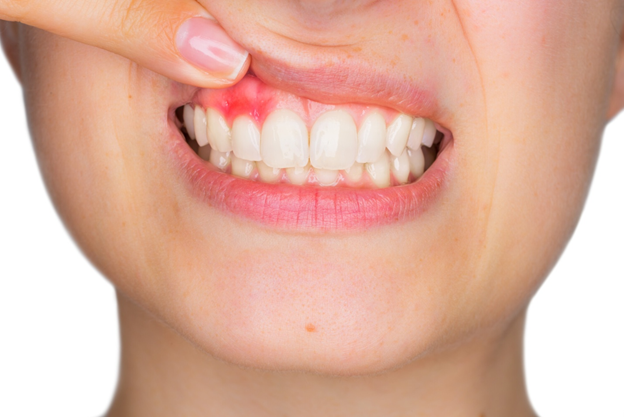The Causes of Receding Gums and Treatment Options

Almost half of all US adults over the age of 30 show signs of gum disease. Gum disease, if left untreated can lead to receding gums. This can cause several issues and ultimately lead to tooth loss.
If you’re worried about gum recession then you’ve come to the right place. In this short article, we’ll take a closer look at the gum recession and its causes. Then we’ll examine available treatment and prevention methods to keep your gums healthy.
What Is Gum Recession?
Gum recession is a common dental problem that happens gradually. The gum tissue that surrounds the teeth slowly pulls back or wears away exposing the tooth and eventually the tooth root.
This creates gaps between the teeth and the gum, increasing the likelihood of bacteria building up and cavities forming. Gum recession can make your gums and teeth more sensitive to brushing or when you’re eating. If left for long enough, gum recession can lead to the supporting structure around the teeth becoming damaged, resulting in potential tooth loss.
What Causes Receding Gums
Several different causes could lead to gum recession. The most common are Periodontal diseases. These are bacterial infections of the gum that cause the gum tissue to deteriorate. If left untreated they can go on to damage the bone that is responsible for keeping your teeth in place.
Unfortunately, for some, gum recession could be genetic. Some people are predisposed to gum disease, no matter how dedicated they are to their oral care.
For many others, receding gums are caused by inadequate dental care. Not brushing regularly or too vigorously, not flossing, and consuming sugary drinks and snacks have a detrimental effect on your teeth and gums.
Other causes for receding gums include:
- Tobacco products
- Hormonal changes
- Certain drugs
- Crooked teeth
- Misaligned bite
- Grinding or clenching your teeth
No matter what is responsible for causing your gums to recede, an early diagnosis and the correct treatment can help to correct it and negate any further issues.
Treatment for Gum Recession
If your receding gums are caught early enough, it might be possible for your dentist to treat them with a deep clean. A dentist can remove the plaque and tartar that has built up on the teeth and below the gumline. They may also prescribe antibiotics to help kill off any remaining bacteria.
If the damage done to your gums cannot be rectified with a deep cleaning then there are several different surgeries to restore the lost gum tissue.
Gum graft surgery involves tissue from the roof of the mouth being stitched to the gum tissue near the affected area. Alternatively, if the gum recession isn’t too severe, the dentist can resecure the gum tissue over the tooth root. This eliminates the gaps between the tooth root and the gum tissue and helps to prevent further decay.
It’s Time to Take Gum Health Seriously
The best way to steer clear of receding gums is to take your oral care seriously. You should brush and floss your teeth every day as well as use an antibacterial mouth wash. Avoid acidic and sugary beverages when possible.
Regular visits to your dentist will mean you don’t get taken by surprise and that your dentist can recommend prevention methods early on if you’re showing possible signs of gum recession.
If you found this article useful then be sure to take a look at the rest of our blog.






